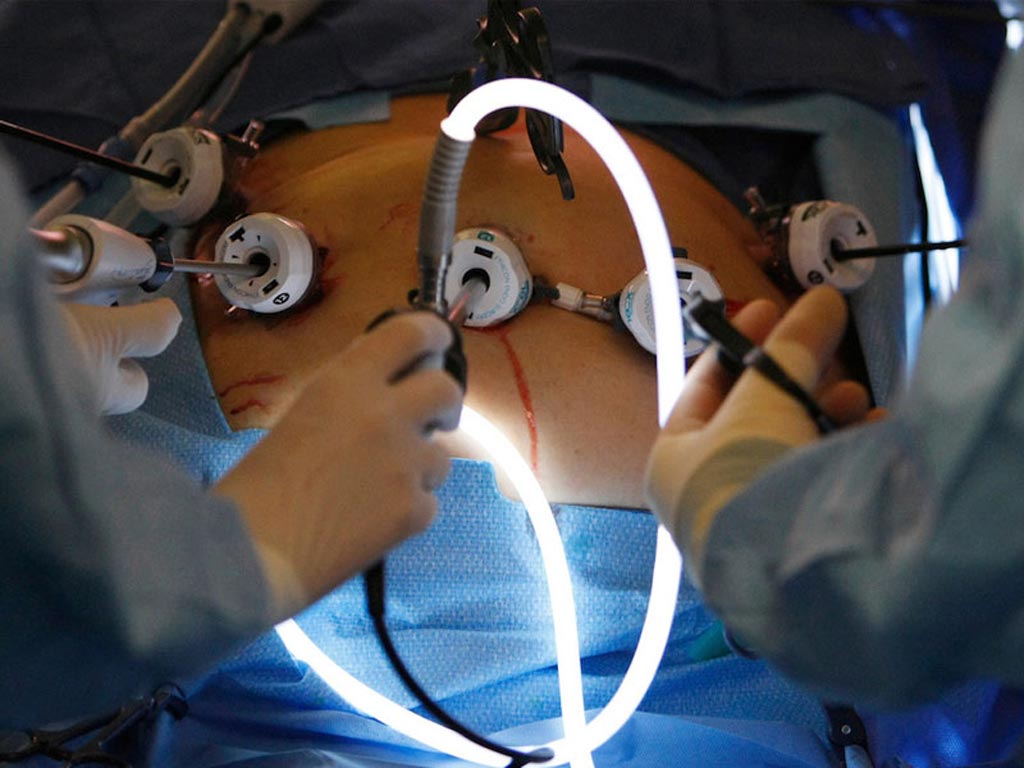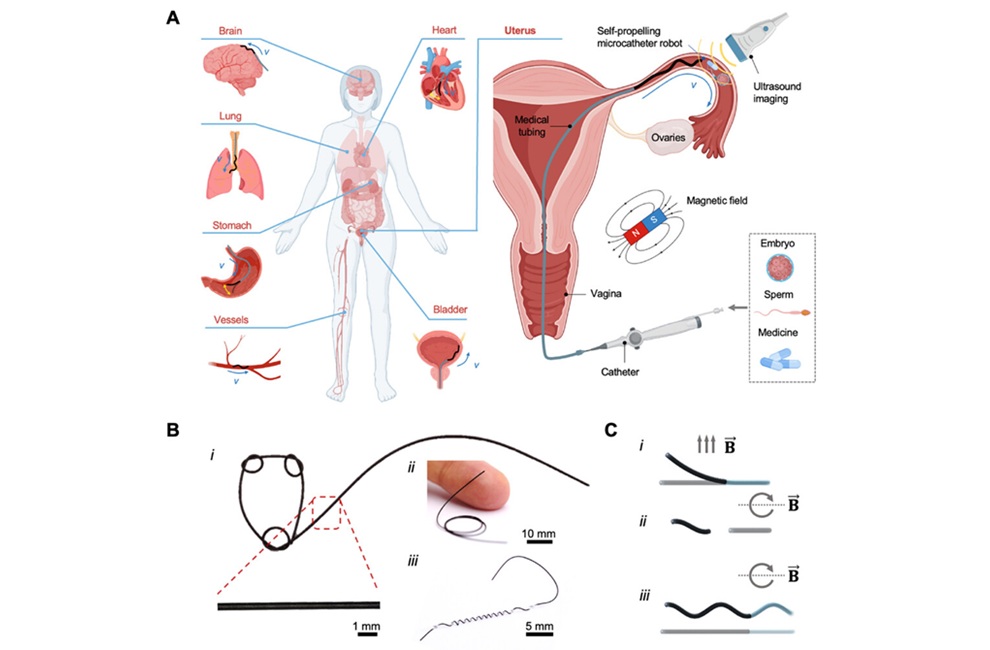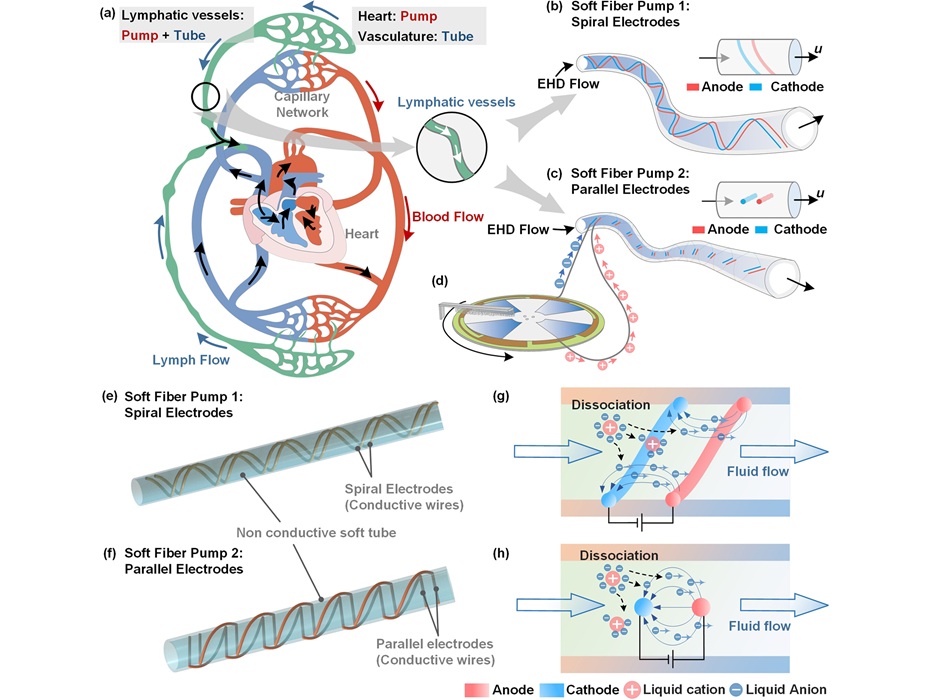Weight-Loss Surgery Creates High Rate of Anemia
|
By HospiMedica International staff writers Posted on 03 Oct 2017 |

Image: A new study Roux-en-Y gastric bypass bariatric surgery can lead to anemia (Photo courtesy of Alamy).
A new long-term study reports a high rate of anemia 10 years after patients receive Roux-en-Y gastric bypass (RYGB) bariatric surgery.
Researchers at Palo Alto Veterans Affairs (VA) Health Care System (CA, USA) and Stanford University (Stanford; CA, USA) conducted a study that involved 74 patients (78% men; average age 51 years) who underwent RYGB at the Palo Alto VA Medical Center and survived to 10-year follow-up. Mean BMI before the procedure was 46.1 kg/m2, and ten years later it stood at 33.7 kg/m2.
The average rate of preoperative anemia was 20%, which increased 10 years later to 47%. During the same time period, the anemia rate in the RYGB group without bariatric specialist follow-up increased to 57% percent, from 22% before surgery. The rate of anemia in those with bariatric specialist follow-up did not increase as significantly 10 years after surgery, rising from 13% preoperatively to 19% at 10 years, after adjusting for preoperative anemia. The study was published on September 20, 2017, in JAMA Surgery.
“Our study suggests that follow-up with bariatric specialists more than five years after surgery, rather than with specialists with no bariatric expertise, can decrease long-term anemia risk,” concluded senior author Dan Eisenberg, MD, MSc, of Stanford. “This finding may demonstrate the bariatric specialist's specific understanding of the long-term risk for nutritional deficiency after RYGB, and the importance of vitamin and mineral supplementation.”
The RYGB procedure has been the gold standard for surgical weight loss intervention for many years. The procedure usually involves laparoscopic minimally invasive surgery to create a stomach pouch from the larger stomach body, which is then connected to a section of the small intestine, leaving just a small opening for food. The result is a rapid sensation of satiety or fullness. Various medical, nutritional, and surgical symptoms requiring treatment may occur after RYGB surgery and may impair patients' quality of life.
Related Links:
Palo Alto Veterans Affairs
Stanford University
Researchers at Palo Alto Veterans Affairs (VA) Health Care System (CA, USA) and Stanford University (Stanford; CA, USA) conducted a study that involved 74 patients (78% men; average age 51 years) who underwent RYGB at the Palo Alto VA Medical Center and survived to 10-year follow-up. Mean BMI before the procedure was 46.1 kg/m2, and ten years later it stood at 33.7 kg/m2.
The average rate of preoperative anemia was 20%, which increased 10 years later to 47%. During the same time period, the anemia rate in the RYGB group without bariatric specialist follow-up increased to 57% percent, from 22% before surgery. The rate of anemia in those with bariatric specialist follow-up did not increase as significantly 10 years after surgery, rising from 13% preoperatively to 19% at 10 years, after adjusting for preoperative anemia. The study was published on September 20, 2017, in JAMA Surgery.
“Our study suggests that follow-up with bariatric specialists more than five years after surgery, rather than with specialists with no bariatric expertise, can decrease long-term anemia risk,” concluded senior author Dan Eisenberg, MD, MSc, of Stanford. “This finding may demonstrate the bariatric specialist's specific understanding of the long-term risk for nutritional deficiency after RYGB, and the importance of vitamin and mineral supplementation.”
The RYGB procedure has been the gold standard for surgical weight loss intervention for many years. The procedure usually involves laparoscopic minimally invasive surgery to create a stomach pouch from the larger stomach body, which is then connected to a section of the small intestine, leaving just a small opening for food. The result is a rapid sensation of satiety or fullness. Various medical, nutritional, and surgical symptoms requiring treatment may occur after RYGB surgery and may impair patients' quality of life.
Related Links:
Palo Alto Veterans Affairs
Stanford University
Latest Surgical Techniques News
- Laparoscopic Surgery Improves Outcomes for Severe Newborn Liver Disease
- Novel Endoscopy Technique Provides Access to Deep Lung Tumors
- New Study Findings Could Halve Number of Stent Procedures
- Breakthrough Surgical Device Redefines Hip Arthroscopy
- Automated System Enables Real-Time "Molecular Pathology" During Cancer Surgery
- Groundbreaking Procedure Combines New Treatments for Liver Tumors
- Ablation Reduces Stroke Risk Associated with Atrial Fibrillation
- Optical Tracking Method Identifies Target Areas in Robot-Assisted Neurosurgery
- General Anesthesia Improves Post-Surgery Outcomes for Acute Stroke Patients
- Drug-Coated Balloons Can Replace Stents Even in Larger Coronary Arteries
- Magnetic Kidney Stone Retrieval Device Outperforms Ureteroscopic Laser Lithotripsy
- Absorbable Skull Device Could Replace Traditional Metal Implants Used After Brain Surgery
- Magic Silicone Liquid Powered Robots Perform MIS in Narrow Cavities
- 'Lab-on-a-Scalpel' Provides Real-Time Surgical Insights for POC Diagnostics in OR
- Biodegradable Brain Implant Prevents Glioblastoma Recurrence
- Tiny 3D Printer Reconstructs Tissues During Vocal Cord Surgery
Channels
Critical Care
view channel
Miniature Non-Invasive Robotic Catheters to Improve Infertility Treatments
Minimally invasive procedures in reproductive and gynaecological medicine are often limited by the difficulty of navigating narrow, delicate anatomical pathways without damaging surrounding tissue.... Read more
Stick-On Patch Monitors Baby's Movements In Utero
Reduced or altered fetal movement is one of the most common reasons expectant parents seek urgent medical care, yet monitoring outside the hospital remains limited. Most pregnant individuals rely on self-counting... Read morePatient Care
view channel
Revolutionary Automatic IV-Line Flushing Device to Enhance Infusion Care
More than 80% of in-hospital patients receive intravenous (IV) therapy. Every dose of IV medicine delivered in a small volume (<250 mL) infusion bag should be followed by subsequent flushing to ensure... Read more
VR Training Tool Combats Contamination of Portable Medical Equipment
Healthcare-associated infections (HAIs) impact one in every 31 patients, cause nearly 100,000 deaths each year, and cost USD 28.4 billion in direct medical expenses. Notably, up to 75% of these infections... Read more
Portable Biosensor Platform to Reduce Hospital-Acquired Infections
Approximately 4 million patients in the European Union acquire healthcare-associated infections (HAIs) or nosocomial infections each year, with around 37,000 deaths directly resulting from these infections,... Read moreFirst-Of-Its-Kind Portable Germicidal Light Technology Disinfects High-Touch Clinical Surfaces in Seconds
Reducing healthcare-acquired infections (HAIs) remains a pressing issue within global healthcare systems. In the United States alone, 1.7 million patients contract HAIs annually, leading to approximately... Read moreHealth IT
view channel
EMR-Based Tool Predicts Graft Failure After Kidney Transplant
Kidney transplantation offers patients with end-stage kidney disease longer survival and better quality of life than dialysis, yet graft failure remains a major challenge. Although a successful transplant... Read more
Printable Molecule-Selective Nanoparticles Enable Mass Production of Wearable Biosensors
The future of medicine is likely to focus on the personalization of healthcare—understanding exactly what an individual requires and delivering the appropriate combination of nutrients, metabolites, and... Read moreBusiness
view channel
Philips and Masimo Partner to Advance Patient Monitoring Measurement Technologies
Royal Philips (Amsterdam, Netherlands) and Masimo (Irvine, California, USA) have renewed their multi-year strategic collaboration, combining Philips’ expertise in patient monitoring with Masimo’s noninvasive... Read more
B. Braun Acquires Digital Microsurgery Company True Digital Surgery
The high-end microsurgery market in neurosurgery, spine, and ENT is undergoing a significant transformation. Traditional analog microscopes are giving way to digital exoscopes, which provide improved visualization,... Read more
CMEF 2025 to Promote Holistic and High-Quality Development of Medical and Health Industry
The 92nd China International Medical Equipment Fair (CMEF 2025) Autumn Exhibition is scheduled to be held from September 26 to 29 at the China Import and Export Fair Complex (Canton Fair Complex) in Guangzhou.... Read more















